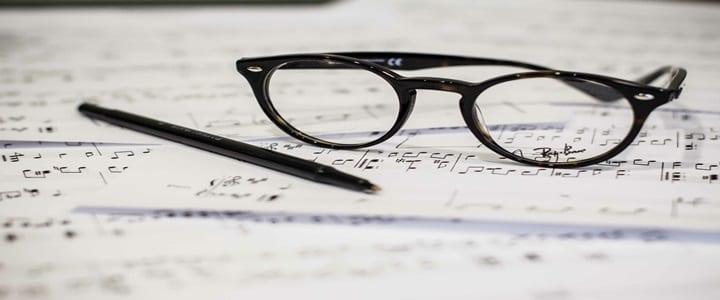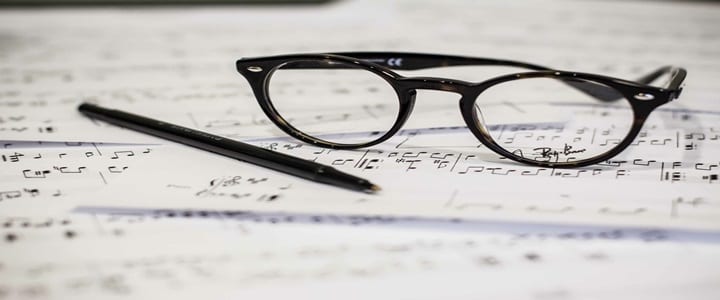As you learn songs and work through your music books, do you memorize the notes? Or do you read along every time you play? In this post, music teacher Vanessa G. discusses the pros and cons to the approaches…
Imagine your teacher gives you a piece of music to study. What’s your process? Do you listen to a recording, memorizing the melody and the stylistic aspects before you begin, and then as you play? Or would you sit down and sight read the notes, and perfect it from that starting point?
When I started teaching, I saw a trend that my students had an affinity toward either memorizing or reading. And with each method, I saw both advantages and disadvantages.
Which approach do you lean toward? Mark your answer in the poll below, and then continue reading to find out the pros and cons.
Memorizers:
Pros:
- You’re great at performance! When you spend the extra time needed to memorize pieces, you’re better able to add the little details that make a piece musical.
- You’re patient during practice! You’ve got to be patient to go through the same passages over and over… and over. The extra practice really strengthens your technique, which is such a gift to yourself.
Con:
- Sight reading music is not your forte, and may be something that requires extra practice. It’s a great skill to have, and one that is often needed for auditions.
Challenge Yourself: If you’re a memorizer, I challenge you to sight read a single line of music a day for a month. I’ll bet your reading skills will soar!
Readers:
Pros:
- You can sight read like a pro! Sight reading music is as easy as reading a book for you. When you look at the notes your fingers know exactly where to go. What a gift!
- You’re good at improvising! The ability to sight read complex pieces requires a strong understanding of music theory. With all of your knowledge you know a lot about chord progressions and song structure. That gives you a wonderful foundation for improvising. Add a little creativity and voila! A new song is born!
Con:
- Preparing for a performance can be daunting. It takes a lot of practice to get a musical piece ready for performance. The subtle differences in a crescendo or ritardando, for example, take a lot of time and coaching to get just right. But it’s worth it! Perfecting every expression of your piece helps you and your audience connect to the intent of the song.
Challenge Yourself: If you’re a sight reader, I challenge you to pick a piece you like to listen to (with the help of your music teacher, to make sure it’s the right level for you) and memorize a complete part or movement.
Which is Better?
So, is it better to be a reader or a memorizer? Well, the answer is: be both! To be a well-rounded musician, it’s worth it to hone in on what you might not do as naturally and learn a new skill. If you’re up for the challenge, I’d suggest finding a music teacher who can help you strengthen what you already do well and find ways to improve what you might not do naturally.
Most of all, whether you’re used to sight reading music or a memorizing it, have fun along the way!
 Post Author: Vanessa G.
Post Author: Vanessa G.Vanessa G. teaches piano, singing, acting, and more in Burbank, CA, as well as online. She received her Bachelor’s in musical theater performance from Columbia College Chicago, and has been teaching audition prep (acting/singing) and vocal technique for clients since 2007. Learn more about Vanessa here!
Suzy S.


